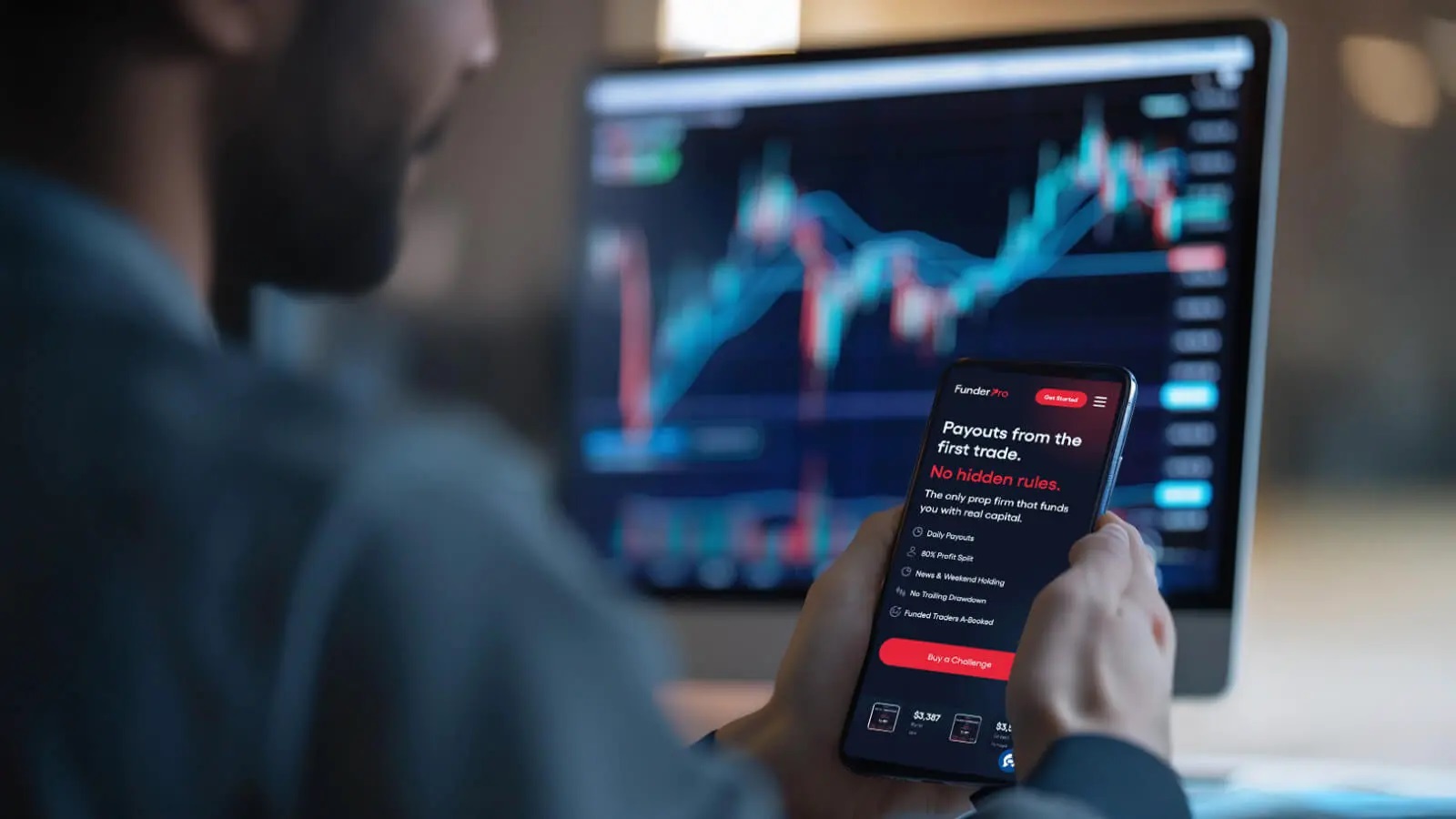5 Why Understanding the Forex Market Is Vital Before Trading
The foreign exchange market (or forex market) is the world’s largest and most liquid financial market, with daily trading volumes...

The foreign exchange market (or forex market) is the world’s largest and most liquid financial market, with daily trading volumes exceeding $7 trillion. It’s a 24-hour market that spans the globe, operating five days a week and allowing traders to profit from the movement of currency pairs such as EUR/USD, GBP/JPY, and many others.
But while the opportunities are enormous, so are the risks — especially for beginners. Diving into trading without a clear understanding of how the forex market works is one of the most common (and costly) mistakes new traders make.
Before you open an account with one of the many forex brokers or register on a foreign exchange trading platform, it’s crucial to understand the market you’re stepping into.
Here are five compelling reasons why understanding the forex market is vital before you start trading.
1. The Forex Market Operates Differently from Other Markets
Unlike stock markets, the forex market doesn’t have a centralized exchange. Instead, it functions through a global network of banks, brokers, and financial institutions.
This creates a few key differences:
- 24-hour trading: The market is open from Monday to Friday, 24 hours a day. This is due to overlapping trading sessions in different time zones (e.g., London, New York, Tokyo).
- Currency pairs: You’re not buying a single asset. You’re simultaneously buying one currency and selling another.
- High liquidity: Forex is extremely liquid, especially in major pairs like EUR/USD, which means tighter spreads but also more rapid price movements.
Understanding these differences helps traders adapt their strategies and manage trades across different sessions. Choosing a foreign exchange trading platform that supports around-the-clock analysis and execution is essential to stay competitive.
2. Volatility and Leverage Can Work for You — or Against You
The forex market is known for its volatility. Currency values can shift significantly in response to:
- Economic reports (e.g., GDP, inflation)
- Central bank decisions (e.g., interest rate hikes)
- Geopolitical events (e.g., elections, wars, trade deals)
Most forex brokers offer leverage — sometimes as high as 1:500 — which allows traders to control large positions with a small capital outlay. But leverage is a double-edged sword. While it can amplify profits, it also increases your risk of losing your entire account.
Without a strong understanding of market fundamentals and risk management, new traders may:
- Over-leverage their positions
- Misinterpret price action
- Get caught in major swings without stop-loss protection
The solution? Start with education, demo trading, and working with reliable brokers that offer risk control tools like margin alerts and guaranteed stop-loss orders.
3. Not All Forex Brokers Are Created Equal
Choosing the right forex broker is critical — and understanding how the market works helps you make a smarter choice.
There are two main types of brokers:
- Dealing desk (market makers): These brokers may take the opposite side of your trade. They often offer fixed spreads but may have conflict of interest concerns.
- No dealing desk (ECN/STP): These brokers connect you to a pool of liquidity providers, offering tighter spreads and more transparency — ideal for experienced or high-frequency traders.
By understanding the structure of the market, you can ask the right questions:
- Is the broker regulated (by FCA, CySEC, ASIC, etc.)?
- How are spreads and commissions structured?
- Does the foreign exchange trading platform offer real-time data, fast execution, and risk management tools?
A lack of understanding can lead to falling for scams or working with poorly regulated brokers that manipulate prices or delay withdrawals.
4. Mastering Market Sentiment and Technical Analysis Is Essential
Unlike long-term investing, forex trading is often short-term and driven by technical patterns and market sentiment. Even professional traders rely heavily on:
- Support and resistance levels
- Trendlines and moving averages
- Momentum indicators like RSI or MACD
- Candlestick patterns
- News sentiment analysis
Understanding how to read and interpret these tools gives you a significant edge. The best foreign exchange trading platforms offer integrated charting, live news feeds, and automated technical alerts — all crucial for informed decision-making.
A deep understanding of the market lets you move beyond emotional trades and base your decisions on data, patterns, and probabilities.
5. Risk Management Separates Traders from Gamblers
Forex is not gambling — but without a solid understanding of risk management, it can feel like it.
Many beginners:
- Risk too much capital on one trade
- Skip stop-loss orders
- Chase losses
- Trade without a clear strategy
Smart traders treat forex like a business. They define their risk per trade (often 1–2% of their capital), set realistic profit targets, and maintain a clear trading journal.
Understanding concepts like:
- Risk-to-reward ratio
- Position sizing
- Correlation between currency pairs
- Impact of overnight swaps or rollover fees
…can help you preserve capital and trade consistently. Most forex brokers offer educational content on these topics — but the responsibility still lies with the trader to master them before jumping into live markets.
Conclusion: Knowledge First, Trades Second
The accessibility of foreign exchange trading platforms and the allure of quick profits have drawn millions into the world of forex. But without a clear understanding of how the market works, you’re more likely to experience losses than gains.
Before you fund a live account, make sure you:
- Understand the structure and volatility of the forex market
- Know how leverage impacts your capital
- Choose a trustworthy, regulated forex broker
- Learn basic technical analysis and risk management
- Use demo accounts to practice and refine your strategy
Forex trading offers exciting opportunities, but only to those who respect its complexity. Learn first — trade second — and you’ll set yourself up for long-term success.

